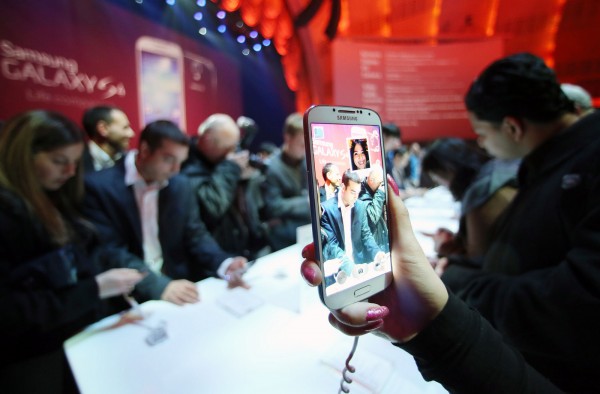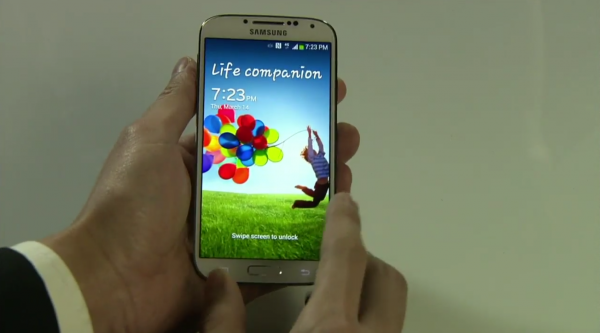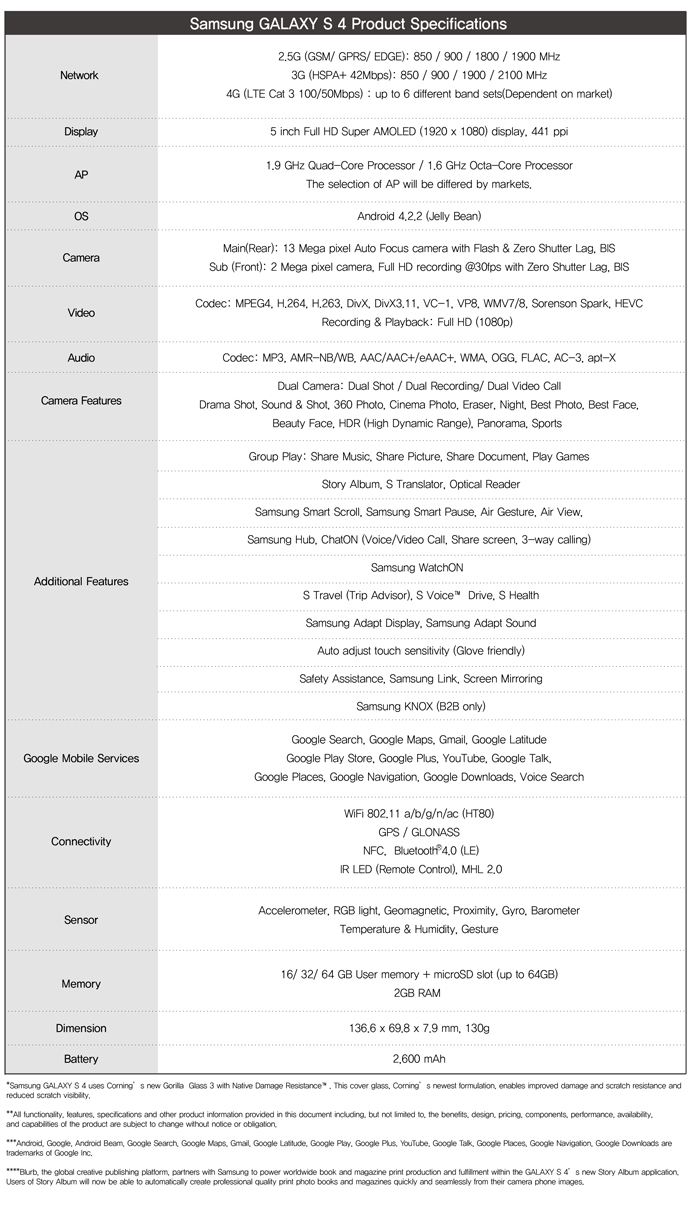
I was wrong about the Galaxy S 4. Last week, I asserted that brand sentiments had changed enough here -- given Samsung's rising popularity, Apple's image problems and high-profile iPhone-to-Android switchers -- that the South Korean electronics giant could launch the S 4 in the United States. Nope. Reception among bloggers, journalists and the Technorati is largely ice cold. Most first-takes I see call the handset a S 3s and no better than iPhone 5. Idiots.
If Steve Jobs was still alive and introduced a Star Trek-like universal translator for iPhone, there would be cries: "Apple does it again". Tell me what's not innovative about translation from, say, English to Chinese or Japanese to French. In real time. On your phone. Or text-to-speech and speech-to-text translation capabilities? Imagine Jobs demonstrating the "Eraser" feature by taking a photo and jokingly removing marketing executive Phil Schiller from the photo. He could demonstrate dual-mode video by initiating a call with Schiller that includes members of the audience, which I promise would roar and clap.
There's No Magic without a Magician
But Jobs is no longer with us. Apple and not Samsung created these amazing software/cloud services features. The South Korean company doesn't have a spokesman of Jobs' caliber, while cultural etiqutette demands the stilted JK Shin, speaking in a foreign language, deliver the key intro. If Samsung marketers had any sense, Galaxy S IV would have introduced itself, by Shin speaking in Korean and the phone translating. Now that would have had impact.
Still, Samsung did something amazingly right in S 4's unveiling (live stream archive), which is unsurprisingly lost on the bloggers and journalists writing about the smartphone. The launch focused on benefits, rather than features, which was the whole point of the different scenarios acted live from Radio City Music Hall.
Samsung rightly focused on what the phone can do for you rather than hardware features, something Apple often did under Jobs. Now iPhone launches focus too much on hardware specs and, doing so, look too much like competing devices. You don't feel the innovation, something Samsung tried to convey about Galaxy S IV.
Tech Elitists aren't Smarter than You
Based on the demos, Galaxy S IV is an amazing smartphone, jam-packed with lots of promising innovations -- mostly software and supporting cloud services. Conveying S 4's benefits, Samsung has three problems:
1. Presentation. For all the pomp and pace of the launch event -- hell, with actors and live orchestra performing -- S 4's special qualities didn't come through enough. Samsung needed what Apple used to have -- a masterful marketer standing on stage performing magic tricks, by making benefits come to life in the most aspirational way.
People buy products that make them feel good, about themselves or their future. During the best product launches Jobs made the audience feel like their lives would be better for purchasing the new thing and, occasionally if in the zone, got those watching feeling their lives would be worse should they not buy.
2. Pack mentality. Jobs' magical touch is widely-known as the "reality-distortion field". The afterglow of a keynote carried through in the stories written about new products -- luster lost without him, based on cooler reception to more recent Apple product announcements.
Make no mistake, there is peer influence among tech writers, which you can measure yourself by doing a few Google News searches. If the first stories praise, the ones that follow tend to have the same tone. Sadly, too many bloggers or journalists look to what others write and deliberately or subconsciously tailor tone accordingly. Haven't you noticed how many stories about tech this or that are similar?
Samsung's "Unpacked" event had no Jobs-like after-glow, even though innovation and benefits are oh-so Apple-like -- and even more. The first stories, coming from the U.S. market, where iPhone is the most popular smartphone, and widely-used by bloggers and reporters, set more of a negative tone. The majority that followed simply echoed criticisms. Too few writers broke from the mob, dared to stand apart, risked being wrong. They formed opinions based on that of others. Shameful. But commonplace.
3. Unrealistic expectations. Strangely, Samsung is like Apple in another way, although twisted. Rumor and hype set expectations high, and that's a problem Apple encountered many times, too. As such, many early blogs, news stories or product previews say the S 4 falls short, but based more on expectations set by rumors than any meaningful measure.
Unsurprisingly, too many writers fixate on form factor (like Galaxy S III but larger) and hardware specs, while ignoring the stunning software and services benefits. Tech writers obsessed about speeds and feeds often don't have the right priorities. They don't use products like you do. They're fussy and entitled. You're smarter than they are. You're who Samsung sells smartphones to. Tech elitists are gatekeepers to early information, because they have access and you don't.
"Life Companion" is a Development Philosophy
The people who get Galaxy S IV, really do, by understanding the pervasive design philosophy. "The S 4 demonstrates extensive innovation by Samsung", Ian Fogg, IHS Screen Digest principal analyst, opines. He focuses on something I also see, not just from this handset but its predecessor.
Two characteristics define Samsung's design philosophy, which sets it apart from every other handset manufacturer on the planet -- and that includes Apple: Context and humanness. I'll start with the latter, looking back to my analysis of Galaxy S III following its launch last year.
Recapping, the original iPhone stood apart from all other mobiles, not just smart ones, for its humanness. Touch, and its intimacy, and the way the handset responded to your proximity gave it a human quality. Suddenly the phone wasn't an inanimate object but more living thing. Apple extended humanness with each new model. Siri is best representation in iPhone 4S and 5.
The S3 extends this responsiveness, by, for example: the front camera detecting whether you are looking at the phone and keeps the screen lit. How many times has your display gone dark while reading a website or ebook? The phone also can automatically turn on, if recognizing your face. Another example: You're in the middle of texting someone and decide to call instead. Lifting the phone to your face places a call to the recipient.

Those are last model's features and all designed to make the phone more responsive to you -- more human-like. Samsung carries the design philosophy forward. Galaxy S 4 packs eight different sensors and uses them to make the phone highly responsive. Wearing gloves or have chocolate on your hands? Wave instead of touch. Watching a movie and turn your eyes away? Playback stops until you look at the screen again. But this responsiveness is much more.
"The reason for Samsung's choice of Galaxy S 4 tagline, 'Life companion' is because the word 'mobile' in mobile phone is highly misleading", Fogg explains. "Smartphones are most importantly about personal experiences, not mobile ones. Many of the new features that Samsung is adding into the S 4 are about the immediate vicinity and even inside the home, and not focused on really mobile life". Stated differently: The phone is highly contextual.
I have repeatedly asserted that Jobs was wrong to call this the post-PC era. We live in the contextual cloud computing era, where software and connected services matter more than the devices. Samsung's emphasis on "personal experiences" is dead-on right. The South Korean vendor is surprisingly focused on software and services, which I wouldn't have expected from a hardware manufacturer. Galaxy S IV adapts based on context.
Want to share the party with a distant friend? Use both cameras for the video call. Want to check your messages while driving? Let the S 4 read them to you. Snapped a great picture of your kids at the park and some guy in a trench coat in the background makes a face? Remove him immediately. You're with school friends at the park and want to party but have no speakers? Connect each smartphone and use them as a single 5.1-speaker system.
Context is about adaptability. At home, you want to play music on your fancy speakers. At the park, when you don't have them, the multiple-S 4 speaker is good enough -- in that context. At the office, you might read and respond to your messages on the PC. In the car, your hands need to be on the wheel, so you have the phone read them.
Samsung's software and services design approach is all about making the smartphone more human, more responsive, more contextually relevant and more like a personal assistant.
Most every story written about Galaxy S IV so ignores these key benefits, which can change people's lives. I'm appalled by the writers complaining about the lack of innovation here. Many of the most-obvious benefits are like science fiction, which ironically is what most stories slamming the S 4 are: fiction.

Photo Credit: Samsung

